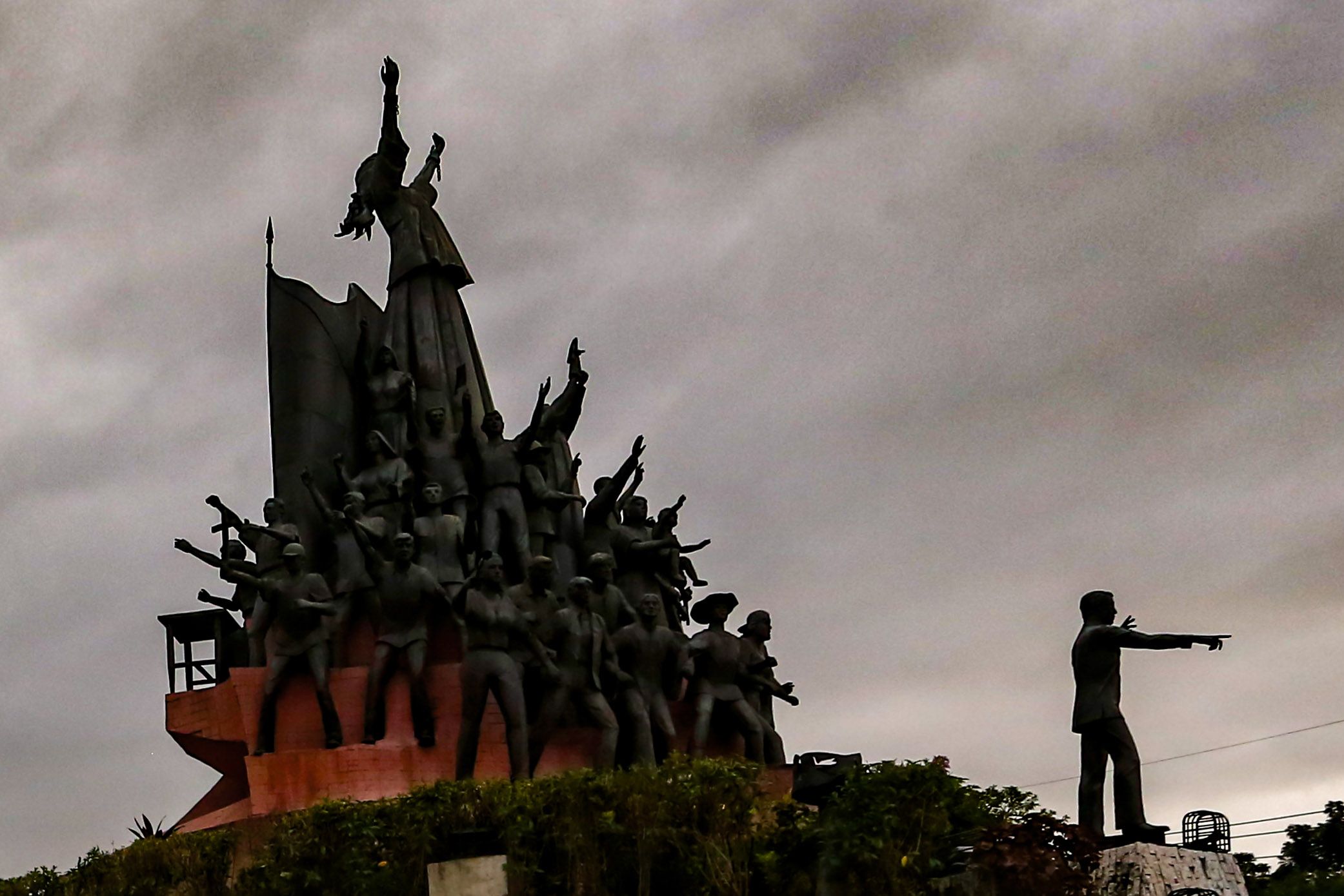EDSA at 39: Why PBBM should restore February 25 as special non-working holiday
Teachers' groups condemn 'blatant attempts' to erase people's resistance against dictatorship, vow to uphold historical truth
As the nation commemorates the 39th anniversary of the People Power Revolution on Tuesday, Feb. 25, teachers' groups urged President Marcos to restore EDSA Day as a special non-working holiday and reiterated their opposition to historical distortion and disinformation.

In separate statements, the Alliance of Concerned Teachers (ACT) Philippines and the Teachers’ Dignity Coalition (TDC) emphasized the importance of commemorating the 1986 People Power Revolution and preserving its historical significance.
While the government declared this year’s EDSA People Power Revolution anniversary a special working day, several schools have suspended work and classes or arranged alternative schedules.
READ:
https://mb.com.ph/2025/2/19/february-25-as-alternative-learning-day
Restore the People Power Holiday
The TDC called on President Marcos to reinstate Feb. 25 as a special non-working holiday.
“We urge the government to restore the People Power holiday, allowing Filipinos, especially the youth, to remember and learn from our collective struggle for freedom,” TDC National Chairperson Benjo Basas said. “The legacy of People Power is not just a relic of the past—it is a continuing lesson that must be passed on to future generations,” he added.
The TDC pointed out that for nearly four decades, EDSA Day has been commemorated as a symbol of the Filipino people's collective courage in peacefully reclaiming democracy. “To disregard it is to erase a defining chapter of our nation's history,” Basas said.
The group emphasized that the events of February 1986 “reverberated across the globe, serving as a model for nonviolent resistance against authoritarian rule.”
“The world watched as millions of Filipinos, armed only with faith and unity, stood against tanks and tyranny—proving that democracy and justice can triumph without bloodshed,” Basas said. “It is a moment that rightfully belongs to the people and must continue to be honored as a national holiday,” he added.
The TDC argued that recognizing People Power as a special non-working holiday would be a “significant step toward national healing and reconciliation.”
“In contrast, the continued neglect of this historical milestone only reinforces the perception that the Marcos family is unwilling to accept the past, further entrenching their place as villains in the annals of Philippine history—especially at a time when political rivals accuse the current administration of authoritarianism and corruption,” Basas said.
Do not downplay
Basas explained that the atrocities of Martial Law—human rights violations, widespread corruption, and extreme poverty—are “established and recorded facts” that ignited the people's demand for change.
“These realities cannot be revised or denied,” Basas said, noting that the People Power Revolution was not “merely an uprising; it was a response to decades of suffering under a dictatorship.”
“Any attempt to downplay its significance disrespects the sacrifices of those who fought for democracy,” Basas said.
The TDC then urged President Marcos to “acknowledge these historical truths,” stating that his administration “cannot simply ignore the lessons of the past.”
Basas emphasized that no matter how much the Philippines has evolved since that historic day, and regardless of the successes or failures of the administrations that followed 1986, the People Power Revolution “remains a defining moment in our nation's history—one that must be honored and remembered.”
“To diminish its significance is to disregard the sacrifices of those who stood for freedom,” Basas said. “The lessons of People Power are as relevant today as they were then, serving as a constant reminder that true democracy requires vigilance, participation, and the courage to stand against oppression,” he added.
The TDC also reiterated its firm stance on advocating for historical truth. “The government must not deny the nation the opportunity to reflect on the importance of democracy, lest it repeat the mistakes of the past,” Basas said.
No to historical distortion
In a separate statement, ACT expressed solidarity with the Filipino people in commemorating the 39th anniversary of the EDSA People Power Revolution, which ousted the Marcos dictatorship in 1986.
“Then and now, we refuse to allow poverty, corruption, and impunity to persist,” ACT said. “Then and now, we stand united with the broad masses in holding puppet and oppressive regimes accountable, demanding justice for the corrupt and abusive, and removing the greedy from power,” it added.
The group also criticized the “blatant attempts” of the current administration to “erase from our collective memory the people's resistance against his father's dictatorship.”
“As a movement of educators born from the people's struggle and the education sector’s defiance during Martial Law, we remain steadfast in our commitment to resisting historical distortion and the spread of disinformation,” ACT said.
The group noted that its members will continue to uphold their duty as teachers and educators to “teach the truth, awaken the people’s consciousness, and ignite their militant, progressive, and nationalistic spirit in the fight for our democratic rights.”
RELATED STORY: